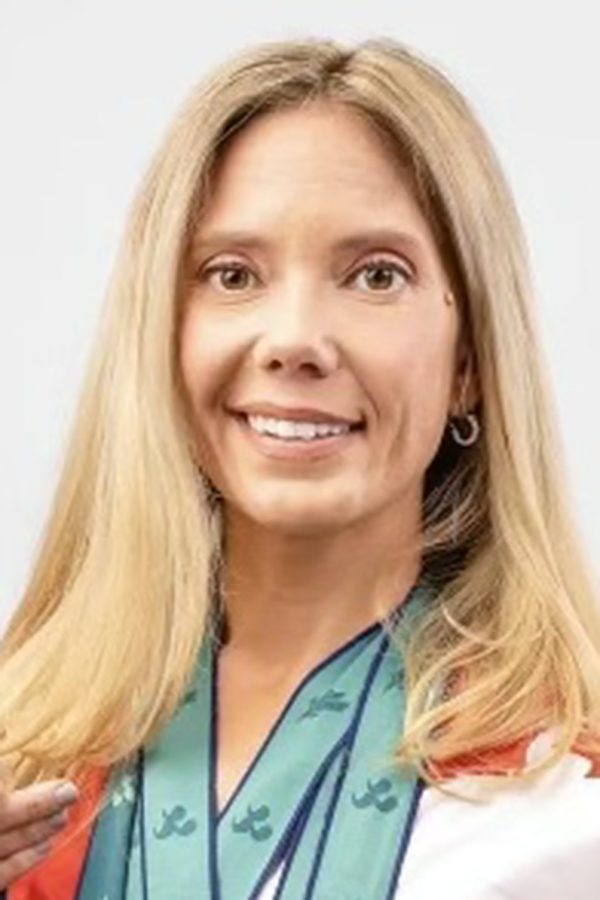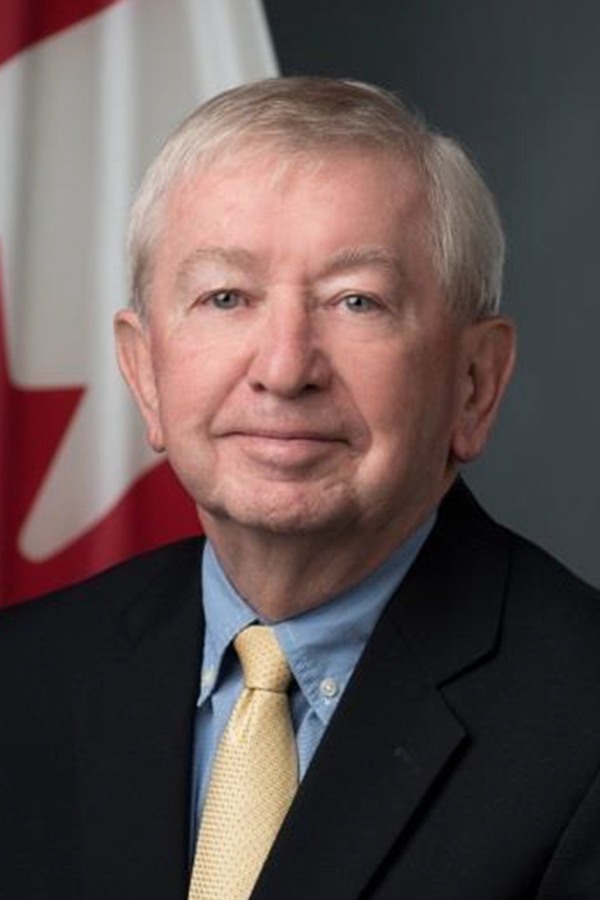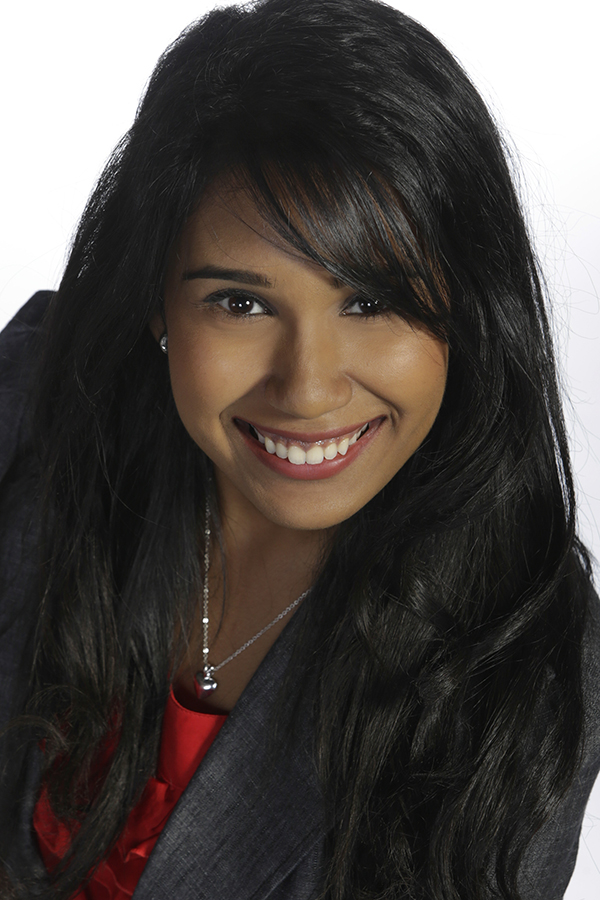 Myrna Kicknosway, Windsor Law elder-in-residence, will receive one of four honorary doctorates during the University’s 119th Convocation.
Myrna Kicknosway, Windsor Law elder-in-residence, will receive one of four honorary doctorates during the University’s 119th Convocation.
The University of Windsor will confer degrees on 5,234 graduating students during 11 sessions of the University’s 119th Convocation ceremonies May 30 through June 2 at the Toldo Lancer Centre.
The University will also award honorary degrees to four individuals who have made outstanding contributions in the areas of athletics and advocacy, law and politics, education and Indigeneity, and youth empowerment and mobilization.
Receiving honorary degrees are: Danielle Campo McLeod, Joseph Comartin, Cheryl Perera, and Myrna Kicknosway.
 Danielle Campo McLeod (BSW 2013) is the mental health lead for the Windsor-Essex Catholic District School Board. She is a social worker, coach, motivational speaker, and former Paralympic gold medallist and world record-holding swimmer.
Danielle Campo McLeod (BSW 2013) is the mental health lead for the Windsor-Essex Catholic District School Board. She is a social worker, coach, motivational speaker, and former Paralympic gold medallist and world record-holding swimmer.
Campo McLeod represented Canada at two Paralympic Games, winning seven medals including three gold, and setting eight world records. Today she inspires others with her story of courage in the face of seemingly insurmountable odds. She is a champion of resilience, wellness, and empowerment.
Her memoir, Resurrections: My Will to Survive is Olympian, documents how competitive sport helped her overcome the crippling effects of muscular dystrophy, her rise to elite international status, learning of a misdiagnosis and overcoming a life-threatening medical condition following the birth of her third child.
Campo McLeod is among the youngest-ever recipients of an honorary doctorate from the University of Windsor. In 2001, she was the youngest-ever recipient of the Order of Ontario, and four years later she was honoured with the Terry Fox Humanitarian Award.
She will receive a Doctor of Laws degree honoris causa at the first session of Convocation, 9:30 a.m. Tuesday, May 30.
 Joseph Comartin (BA 1968, LLB 1971) is a former litigator, educator, politician, and diplomat.
Joseph Comartin (BA 1968, LLB 1971) is a former litigator, educator, politician, and diplomat.
He began his legal career in criminal, family, and personal injury law and was instrumental in founding the Canadian Autoworkers Legal Services Plan. He also helped establish co-operative housing and the union’s child-care centre.
On entering federal politics, he represented the riding of Windsor-Tecumseh from 2000 to 2015, also serving in such leadership positions as Opposition House Leader and Deputy Speaker of the House of Commons. Highly regarded by fellow MPs from all parties, he was thrice recognized as Canada’s most knowledgeable parliamentarian.
Upon leaving elected office, Comartin took up an appointment as distinguished political scientist in residence at the University of Windsor, where he taught ethics and reform in Canadian Parliament and a constitutional law course from 2016 to 2018.
From 2018 to 2022, he served as the Consul General of Canada in Detroit, representing Canada in Indiana, Kentucky, Michigan, and Ohio.
Comartin will receive a Doctor of Laws degree honoris causa at the second session of Convocation, 2 p.m. Tuesday, May 30.
 Cheryl Perera is the founder and president of OneChild, the first organization in the world empowering children and youth to combat the sexual exploitation of children through prevention education, advocacy, and mobilization, survivor care, and survivor empowerment.
Cheryl Perera is the founder and president of OneChild, the first organization in the world empowering children and youth to combat the sexual exploitation of children through prevention education, advocacy, and mobilization, survivor care, and survivor empowerment.
At the age of 16, Perera learned in high school about the sexual exploitation of children and was filled with anger and passion to eradicate this crime. At 17, she embarked on a solo, fact-finding mission to Sri Lanka where she visited the streets, slums, and brothels to meet with child victims, non-governmental agency workers, and law enforcement to learn how she could help. She partnered with the National Child Protection Authority and acted as a decoy — a 15-year-old victim of the sex trade — in a high-risk sting operation that resulted in the successful apprehension of a child sex perpetrator.
Today, her career spans 23 countries, where she has interviewed children in red-light districts and brothels; joined law enforcement surveillance missions; pioneered Canada’s first prevention education program directed at schools; and has provided shelter and long-term comprehensive care to hundreds of child victims in Asia.
Perera will receive a Doctor of Laws degree honoris causa at the fifth session of Convocation, 2 p.m. Wednesday, May 31.
Myrna Kicknosway is elder-in-residence at Windsor Law. Her Anishinaabe Nozwin is Ishkode Makazin Kwe — Fire Moccasin Woman — and she is a Bodawatomi/Odawa Anishinaabe Kwe of the Loon Clan, residing at Walpole Island First Nation.
Her background and skills have led her to work professionally and voluntarily in the fields of education, counselling, economic and employment planning, federal corrections, environmental activism, and community development.
In her role as Elder-in-Residence, Kicknosway acts as a surrogate grandmother and is available to counsel students, faculty, and staff for mental, spiritual, emotional, and physical health needs from a holistic Indigenous perspective. She shares her expertise in Indigenous culture and traditions with younger generations.
Her life journey has led Kicknosway towards recognition of the inter connectedness of all humans, the significance of culture, language, traditions, and all those elements that help sustain life here, this place we call home.
In addition to her position at Windsor Law, Kicknosway is a visiting elder at Western University and Midewiwin of the Three Fires Midewiwin Lodge.
She will receive a Doctor of Laws degree honoris causa at the 11th session of Convocation, 2 p.m. Friday, June 2.
Convocation Schedule
Tuesday, May 30
Session 1: 9:30 a.m.
Faculty of Arts, Humanities and Social Sciences (undergraduate and graduate studies)
- Psychology
- Social Work
- Women’s and Gender Studies
Session 2: 2 p.m.
Faculty of Arts, Humanities and Social Sciences (undergraduate and graduate studies)
- All other Faculty of Arts, Humanities and Social Sciences programs not included in Session 1
Session 3: 6:30 p.m.
Faculty of Science (undergraduate and graduate studies)
- All Faculty of Science programs not included in Sessions 4 or 5
Wednesday, May 31
Session 4: 9:30 a.m.
Faculty of Science (graduate studies)
- Computer Science
Session 5: 2 p.m.
Faculty of Science (undergraduate studies)
- Computer Science
Odette School of Business (undergraduate studies)
Session 6: 6:30 p.m.
Odette School of Business (graduate studies)
Faculty of Engineering (undergraduate and graduate studies)
- Civil Engineering
- Environmental Engineering
Thursday, June 1
Session 7: 9:30 a.m.
Faculty of Nursing (undergraduate and graduate studies)
Session 8: 2 p.m.
Faculty of Engineering (undergraduate and graduate studies)
- Electrical Engineering
- General Engineering
Session 9: 6:30 p.m.
Faculty of Engineering (undergraduate and graduate studies)
- Mechanical Engineering
- Material Engineering
Friday, June 2
Session 10: 9:30 a.m.
Faculty of Education (undergraduate and graduate studies)
Faculty of Human Kinetics (undergraduate and graduate studies)
Session 11: 2 p.m.
Faculty of Law (undergraduate and graduate studies)
Every session will be livestreamed on the UWindsor YouTube channel.








